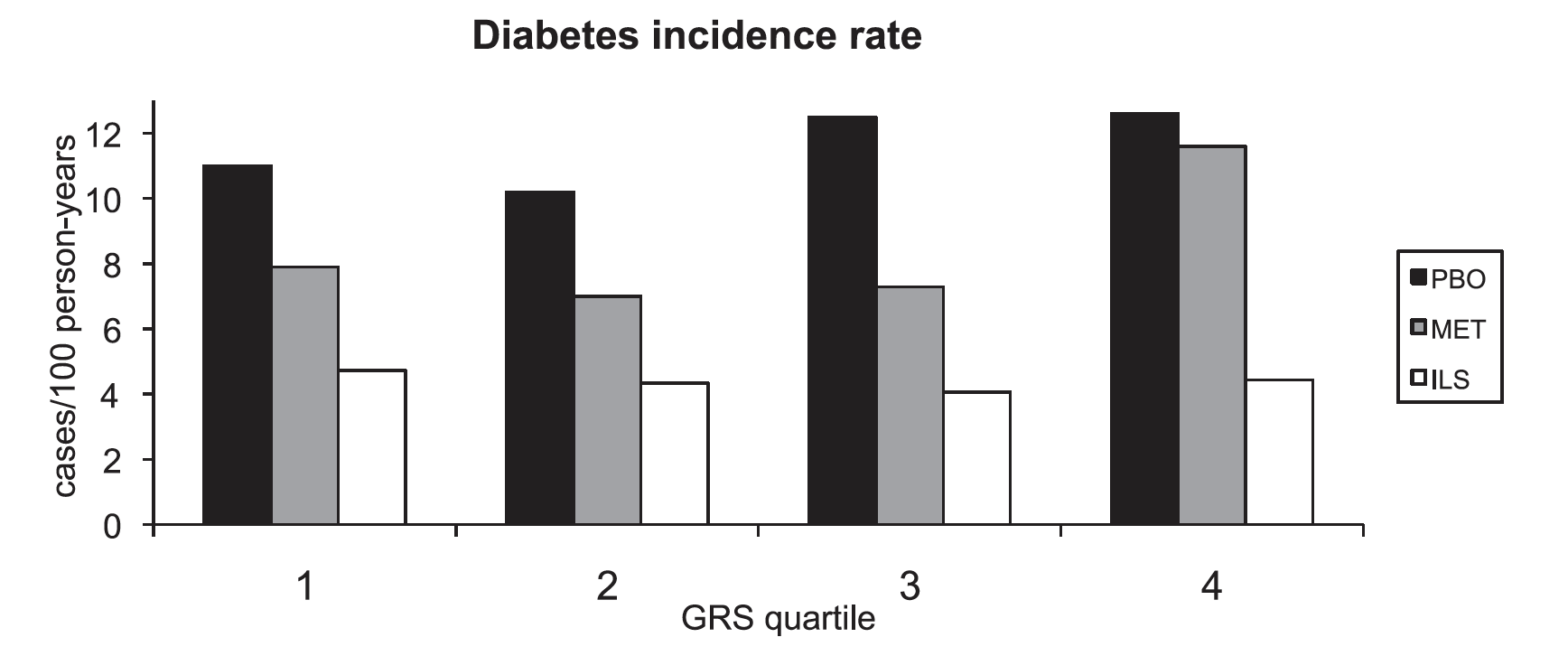Updated genetic score based on 34 confirmed type 2 diabetes loci is associated with diabetes incidence and regression to normoglycemia in the Diabetes Prevention Program

OBJECTIVE:
Over 30 loci have been associated with risk of type 2 diabetes at genome-wide statistical significance. Genetic risk scores (GRSs) developed from these loci predict diabetes in the general population. We tested if a GRS based on an updated list of 34 type 2 diabetes-associated loci predicted progression to diabetes or regression toward normal glucose regulation (NGR) in the Diabetes Prevention Program (DPP).
RESEARCH DESIGN AND METHODS:
We genotyped 34 type 2 diabetes-associated variants in 2,843 DPP participants at high risk of type 2 diabetes from five ethnic groups representative of the U.S. population, who had been randomized to placebo, metformin, or lifestyle intervention. We built a GRS by weighting each risk allele by its reported effect size on type 2 diabetes risk and summing these values. We tested its ability to predict diabetes incidence or regression to NGR in models adjusted for age, sex, ethnicity, waist circumference, and treatment assignment.
RESULTS:
In multivariate-adjusted models, the GRS was significantly associated with increased risk of progression to diabetes (hazard ratio [HR] = 1.02 per risk allele [95% CI 1.00-1.05]; P = 0.03) and a lower probability of regression to NGR (HR = 0.95 per risk allele [95% CI 0.93-0.98]; P < 0.0001). At baseline, a higher GRS was associated with a lower insulinogenic index (P < 0.001), confirming an impairment in ?-cell function. We detected no significant interaction between GRS and treatment, but the lifestyle intervention was effective in the highest quartile of GRS (P < 0.0001).
CONCLUSIONS:
A high GRS is associated with increased risk of developing diabetes and lower probability of returning to NGR in high-risk individuals, but a lifestyle intervention attenuates this risk.



